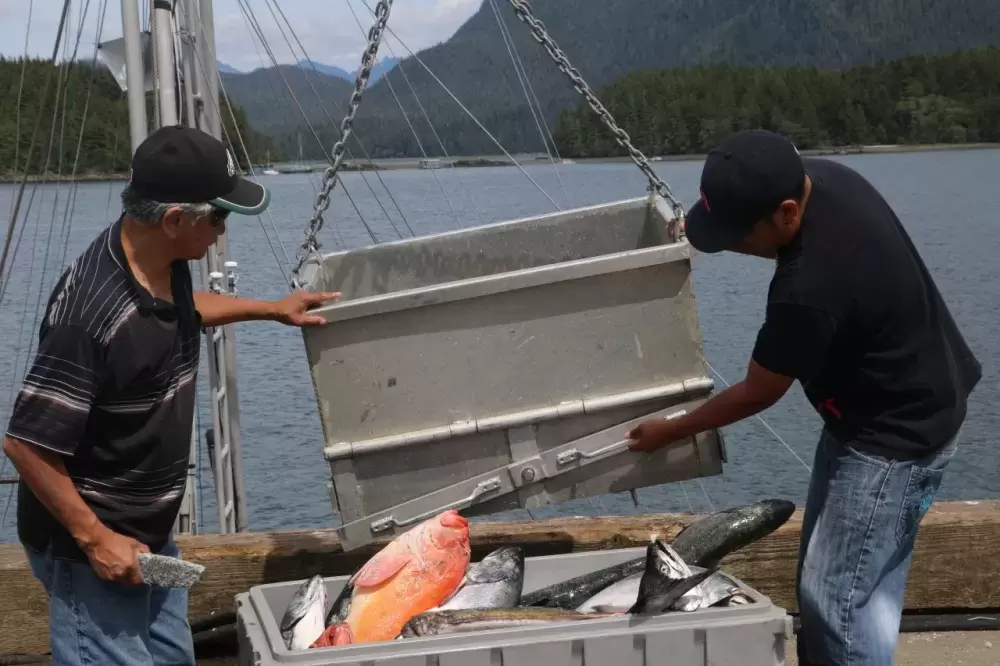More than eight years after a court ruling granted five Nuu-chah-nulth nations the right to harvest and sell fish from their own territories, a judgement clarifying how these rights will proceed is expected Thursday, April 19.
The five nations involved with the T’aaq-wiihak fisheries, which include Ahousaht, Ehattesaht/Chinekintaht, Hesquiaht, Tla-o-qui-aht and Mowachaht/Muchalaht, heard from the B.C. Supreme Court on April 12 that a decision on what has become known as the “justification trial” will be announced Thursday. This will help determine how the court’s Ahousaht et al. ruling will be implemented on the water.
The justification trial concluded in the fall of 2016 after 144 days of proceedings. This was a second phase of litigation that followed the B.C. Supreme Court’s 2009 ruling on the five nations’ Aboriginal right to fish and sell from their Hahoulthee (chiefly territory). The 2009 court judgement was followed by unsuccessful appeals from the federal government and years of negotiations with Fisheries and Oceans Canada.
Saul Milne is the acting fisheries manager for T’aaq-wiihak, which means “fishing with permission of the Ha’wiih.”
“It is important to remember that the fisheries were purposefully taken from the five nations by the Government of Canada through policies, regulations and actions of DFO,” he said. “This was a finding in the original trial that determined the five nations have the Aboriginal right to fish and sell, and that right was infringed on by Canada. The commercial and recreational sectors continue to benefit financially from this expropriation.”
When details of the justification trial are announced on the steps of the B.C. Supreme Court in Vancouver, members of the five nations involved hope the decision will help to reverse a fishing decline that has cost many in Vancouver Island’s west coast communities their livelihood. For the last several years the five nations have worked on their community-based fishing plans. These plans will direct the T’aaq-wiihak fishery regardless of the justification trial decision, said Milne.
“No matter what is contained in the decision the five nations’ fishing plans that have been approved by the Ha’wiih and nations will guide their fisheries in 2018 and beyond,” he said.
The nations’ vision for community-based fisheries include hasaamac (crab), titimakai (prawn and shrimp), suuhaa (chinook and other salmon) and hec-shin-a tee-is yah-yah-ch-kin (integrated groundfish). The nations have stated that they are prepared to harvest the full amount of suuhaa in their plans, which would be a substantial increase to what DFO has allocated in recent years. Increases in halibut and lingcod increases are also possible this year, although time is running out for changes to the prawn and crab harvest, explained Milne.
“Implementing the nations’ fishing plans for these species will require modest changes to the existing DFO management regime, actions that so far DFO has been reluctant to take despite repeated requests from the five nations,” he said.
In February Dominic LeBlanc, Canada’s Minister of Fisheries and Oceans, sent a letter to the five nations with details on what the DFO is prepared to offer for this year’s fishing season.
“I was pleased to extend an offer to the five nations to facilitate a transfer of licences and quotas for ground fish, salmon and shellfish,” said LeBlanc in the House of Commons on Feb. 16. “This is a concrete step taken in the spirit of reconciliation.”
Although this offer indicates that Ottawa is trying to progress the relationship with the five nations, specific details on the T’aaq-wiihak fishing plans were not contained in the letter, said Milne.
DFO has valued the additional licences and quotas in the February offer at $8.1 million. This brings the total monetary value of the combination of licences and quotas that have been transfered to the nations since negotiations began after the 2009 court judgement to $40 million, according to Fisheries and Oceans Canada.
“The Government of Canada may think the current access provided to the nations is a significant investment, but money and DFO licences are not what the court case was about for the five nations,” said Milne. “Fishing reasonable harvest shares under the nations’ Aboriginal right will require Canada to reallocate resources from recreational and commercial fisheries. The government has options on how it reallocates resources; compensating harvesters that will have their allocations reduced is one option that the government seems to prefer.”
The justificiation trial ruling is expected to be annouced at 2 p.m. Thursday, on the steps of the B.C. Supreme Court at 800 Hornby Street in Vancouver. The event will be broadcast through a live stream on the Ha-Shilth-Sa website.







